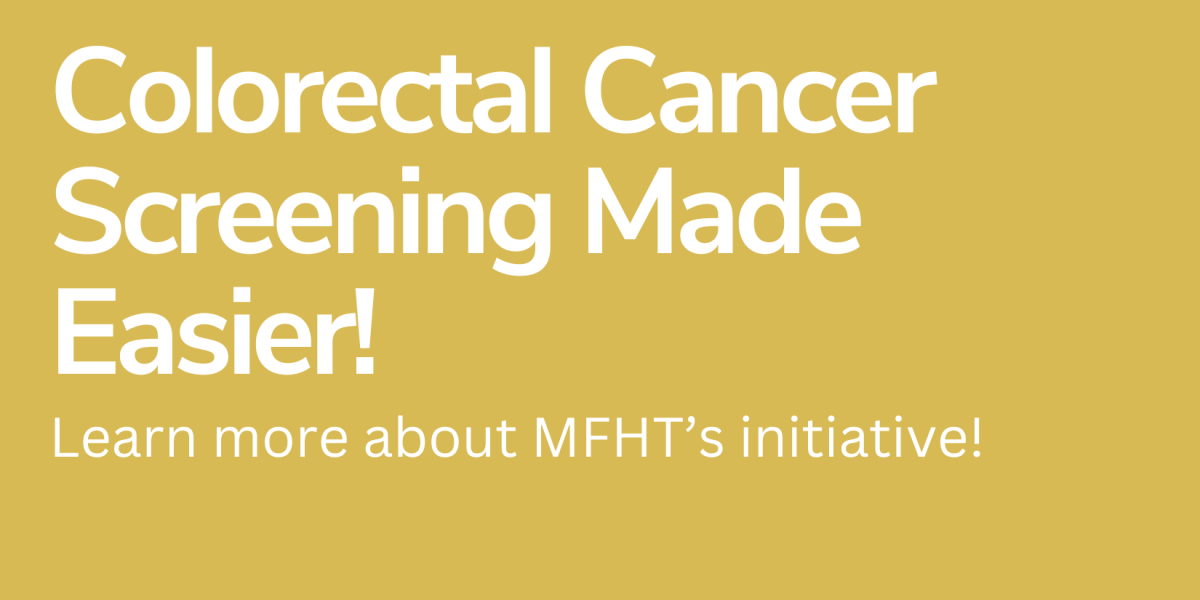Colorectal cancer is one of the most common cancers and a leading cause of cancer-related deaths in Ontario. But, it is also one of the most preventable and treatable cancers if caught early. This Colorectal Cancer Awareness Month, the Marathon Family Health Team (MFHT) is sharing important information about colorectal cancer, screening, and prevention.
What is Colorectal Cancer?
Colorectal cancer affects the colon or rectum, parts of the large intestine. It can also be called colon or rectal cancer, depending on where it starts. Early signs of colorectal cancer can include changes in bowel habits (like how often you go, the consistency, or color), stomach pain, blood in the stool, and unexpected weight loss.
Why is Screening Important?
Screening helps find signs of disease before you have symptoms. Colorectal cancer often grows slowly and without symptoms in the early stages, which is why regular screening is so important. 9 out of 10 cases can be successfully treated if caught early. Screening helps prevent cancer or find it early when treatment works best.
How do you Get Checked?
Screening for colorectal cancer is simple and can be done at home with a FIT (Fecal Immunochemical Test). This free, easy-to-use test checks for small amounts of blood in the stool, which may be a sign of colorectal cancer or precancerous polyps.
Who is Eligible for a FIT?
People aged 50 to 74 who are at average risk for colorectal cancer should get a FIT every two years. Average risk means you don’t have a parent, sibling, or child with colorectal cancer, and you don’t have symptoms or a personal history of related health issues.
Eligibility includes:
- No unusual or concerning symptoms.
- No personal history of colorectal cancer, Crohn’s disease, or ulcerative colitis.
- No colorectal polyps that need to be checked.
- Due for screening (you haven’t had a FIT in the last two years and haven’t had a sigmoidoscopy or colonoscopy in the last 10 years).
If you have a family history of colorectal cancer or are having symptoms, talk to your healthcare provider about the best screening options for you.
How to Get a FIT Kit
If you’re eligible for colorectal cancer screening, you’ll get a reminder letter from Cancer Care Ontario. Normally, after getting the letter, you would need to contact your healthcare provider to request a free FIT kit.
However, this year, MFHT is making it easier to get screened! Since our community’s screening rates are lower than the provincial average, we’re trialing a new program to automatically send requisitions for eligible patients. This means your FIT kit will be mailed directly to your home – no extra steps needed!
Want to opt out? No problem – just let us know!
This program will be rolled out over the next year. If you don’t get a kit right away, don’t worry! You may be scheduled for a later date, or it may be too early based on your last screening.
One important reminder: Make sure MFHT has your correct address so your FIT kit gets to the right place! You can update your contact information by emailing appointments@mfht.org or calling 807-229-3243.
Reducing the Risk of Colorectal Cancer
Here are some ways to reduce your risk of colorectal cancer:
- Be active:Try to get 30 minutes of moderate daily activity, like brisk walking, low-impact exercises, or even household chores.
- Limit alcohol intake: If you drink, keep it to 2 drinks or fewer per week.
- Eat a diet high in fiber: Include plenty of vegetables, fruits, whole grains, and beans.
- Limit red and processed meat.
- Avoid smoking or using tobacco.
- Follow cancer screening guidelines: Stay on top of your screening schedule and be proactive about your health.
By understanding colorectal cancer and taking action with screening and prevention, you can lower your risk and improve your health.



